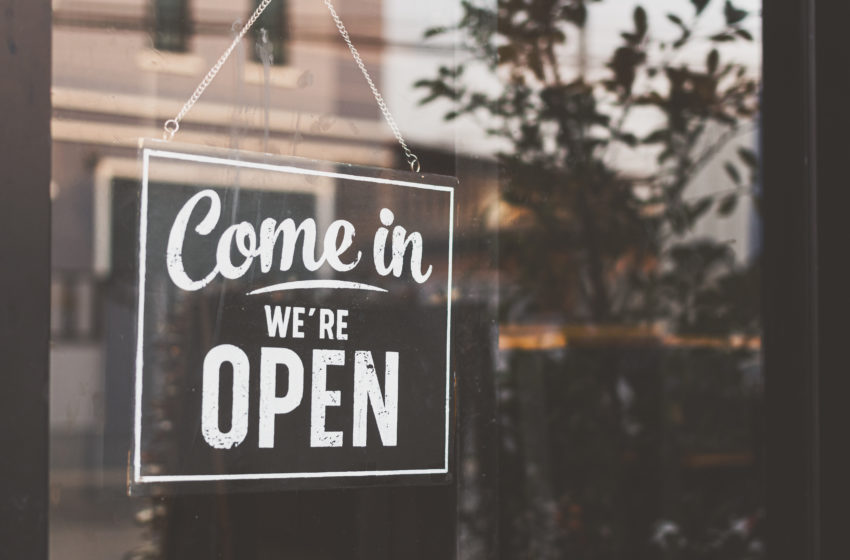Helping Underserved Businesses Through the COVID-19 Recovery

Recovery from the economic hardships of the COVID-19 pandemic isn’t going to be easy for anyone, but it will be especially hard for entrepreneurs and small business owners in underserved communities. Often minority-owned, these businesses are essential to supporting their local communities as well as the overall economy. As we continue to experience the fallout of the pandemic, small businesses of all kinds should be aware of the help available to them, whether through community resources or assistance from local governments.
Mounting evidence suggests that ethnic and racial minority groups have been harder hit by the virus than other groups. Healthcare costs around infection can be significant, as can the loss of work hours, so it is likely that minority-owned businesses are going to feel these economic effects most acutely. It will take significant resources, both material and informational, for this sector to rebound from the pandemic.
I currently serve as CEO of The DEC Network, a Dallas/Fort Worth–based nonprofit, membership-based business incubator for entrepreneurs, small business owners, and startups. Approximately 64 percent of our membership is made up of minority business owners and entrepreneurs. Anecdotally, as we talk to our members, we’re hearing a lot of stories about businesses in underserved communities that missed the Small Business Administration and Paycheck Protection Program loans for a variety of reasons that don’t necessarily apply to businesses in other communities. Frequently, these business owners do their banking out of a personal account, aren’t incorporated, and sometimes don’t have payroll to meet—it might be just the entrepreneur and a spouse building the business. These are a few of the reasons why a large percentage of underserved businesses did not qualify for the loans.
But it’s not just the PPP loans and other SBA relief programs that many underserved businesses don’t qualify for. History shows that these communities are often broadly left out of government reform programs, from Reconstruction after the Civil War to the New Deal after the Great Depression to the reform act after the 2008 recession. While it’s great that the federal government made PPP loans available as quickly as they did, the speed with which businesses needed to apply created a kind of chaos that disproportionately affected underserved business owners. They are the ones who are less likely to have attorneys or accountants or a whole host of other resources to depend on. When you have a first-come, first-served system like with the SBA loans, the first to be served are often the businesses that have support and guidance from many different sources. This means that underserved businesses often fall behind.
This pandemic recovery needs to be more balanced and nuanced than the rapidly deployed emergency loans through the SBA and CARES Act allowed for. We’re now beginning to see a lot of local county and city governments, chambers of commerce, businesses, and private donors filling in the gaps. Many entities that were missed by the federal money are the most important ones to support with both money and information. They’re the ones who provide employment and economic stability to the underserved communities. The pandemic is going to have a ripple effect in these areas for a very long time.
In recent months, the DEC Network has implemented several programs to help small business owners and entrepreneurs through the pandemic. It’s our responsibility to respond in a way that reflects what our population looks like, which means we have prioritized allocating resources to the minority- and woman-owned small businesses that we have seen missing out on relief. These are some of our largest efforts; if you run a small business in North Texas, please be in touch:
- The Revive Dallas Small Business Relief Fund. The DEC Network developed this fund to get money to those well-deserving businesses in underserved areas that need this material help. The fund began taking applications in June to help primarily minority- and women-owned businesses the SBA loans were unable to help. We’re proud that the fund has been supported by the Dallas Regional Chamber, the North Dallas Chamber of Commerce, the Dallas Black Chamber of Commerce, and the Greater Dallas Hispanic Chamber of Commerce.
- The Fast Start Mentoring Program. Many younger or less experienced small business owners don’t have experience navigating global crises like the current pandemic. However, many other entrepreneurs have been in business long enough to have survived challenges like 9/11 and the 2008 recession and know exactly what it takes to get through a rapidly changing landscape like the one we’re facing today with COVID-19. The Fast Start Mentoring Program, to bring these two together. Since developing and launching the program over the past few months, an astounding number of both mentors and mentees have signed up. The mentorship process can be amazingly helpful.
If you’re a small business owner elsewhere in Texas, here are some other tips to use as the recovery continues:
- Use the Let’s Grow North Texas Business platform. This platform offers timely, actionable resources to the entrepreneurial community affected by COVID-19. See its resource hub, including guides, virtual events, lists of funding sources, online tools, and a weekly community resources newsletter.
- Work out your recovery plan with a mentor. Whether you use our Fast Start Mentoring Program or not, find a more seasoned entrepreneur and work with them on a 30, 60, 90-day recovery plan. There are a lot of folks sitting on the sidelines with crisis management experience who want to help with those plans and provide guidance to help your small business survive.
- Stay abreast of new programs. A lot of aid is coming in the next few months. Stay aware of what new resources are out there and apply quickly. One good way to do that is to:
- Take advantage of your local chamber of commerce. These organizations are made up of people doing their best to develop local business and strengthen the community, and they offer many resources, from online tools to virtual networking.
While banks and the federal government have done a good job helping small businesses under the circumstances, more help is needed. Now we have a chance to go back, using community leaders and local funds, and best spend that money by finding underserved businesses that were missed in the first pass. We still have a lot of work ahead of us, but it is heartening to see an unprecedented level of collaboration to help these often-ignored businesses.





